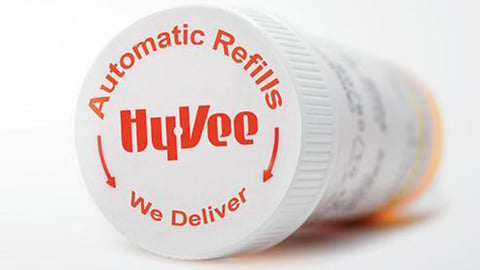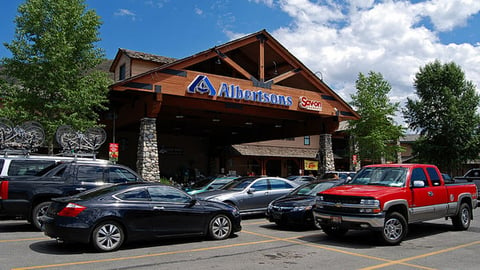Grocers' Pharmacists Tackle the Opioid Crisis
As some of the most trusted health professionals and dispensers of prescription medications, pharmacists are often on the front lines of the opioid crisis and can play a crucial role in combating opioid misuse and abuse.
“Pharmacists have a unique and meaningful opportunity to communicate directly with their customers about the safe use, storage and disposal of opioid medication,” says John Parker, SVP of communications for the Arlington, Va.-based Healthcare Distribution Alliance (HDA).
Key Takeaways
- Pharmacists, including those at supermarket chains, are engaging in training in response to the ongoing epidemic of opioid misuse and abuse.
- More supermarket operators are installing take-back receptacles to give customers a safe and responsible way to get rid of unused, unwanted or expired drugs.
- Many grocers are also now carrying naloxone to help reverse overdoses for people at risk of opioid-related issues.
To be most effective in the fight against opioid abuse, pharmacist training is critical. One recent study of pharmacists in Utah finds that although pharmacists are knowledgeable about opioid pharmacotherapy and prescribing guidelines, there remains a “lack of active participation by pharmacists in this major public health challenge.” The study concludes that there’s a “need for education in several aspects of opioid dispensing, naloxone use and efficient use of risk identification tools.”
Last year, the HDA launched Allied Against Opioid Abuse (AAOA), a national opioid education and awareness initiative. Formed by a network of national and local partnerships across the pharmaceutical supply chain, the AAOA has created a comprehensive toolkit of resources to help pharmacists better inform and guide patients at that crucial moment when the prescription is dispensed to the patient.
“The more we can communicate effectively about the rights, risks and responsibilities associated with prescription opioids, the more successful we will be in our efforts to curb abuse and misuse in our communities,” says Parker.
Supermarkets Take Action
Many supermarket chains are also stepping up pharmacist training on this key topic. “This year, we released a comprehensive training program that addresses this need,” affirms Jennifer Rapley, pharmacy communications manager at Boise, Idaho-based Albertsons Cos.
“All our pharmacists are now required to complete a multi-module training program that addresses controlled substance dispensing from top to bottom, including regulatory requirements, therapeutic and monitoring considerations, naloxone use, medication-assisted treatment (MAT) for those with substance-use disorder, and effective communication with patients and prescribers.”
According to Rapley, Albertsons has enhanced its pharmacy training and policies while improving its oversight functions. “We also continue to leverage Prescription Drug Monitoring Program (PDMP) integration in our dispensing software in states where allowed,” she notes.
Tops Markets LLC provides education on this subject at its annual pharmacist meeting as well as through programs offered by the State University of New York at Buffalo. “In our Pennsylvania and New York stores, we have prescription-monitoring programs that allow our pharmacists to monitor and limit doctor shopping so we can identify a problem before it becomes a risk,” says Matthew Hamed, director of pharmacy at the Williamsville, N.Y.-based grocery store chain.
At The Kroger Co., pharmacy staff are required to take annual controlled-substance compliance training, which includes how to identify and resolve red flags. “We work with the American Pharmacists Association to offer additional trainings that include an overview of existing opioid-prescribing guidelines, general strategies for addressing the needs of patients with substance-use disorders, and review approaches to take when converting patients from one medication to another,” says Nicholas Gonzales, health and wellness compliance officer at Cincinnati-based Kroger.
Last year, Hy-Vee changed its pharmacy policy on refilling or filling opioid prescriptions. The West Des Moines, Iowa-based company no longer allows its pharmacies to subsequently fill a Schedule II controlled substance or refill a Schedule III or Scheduled IV controlled substance more than 72 hours early without authorization from the prescriber.
The grocer is also limiting the initial quantity of opioids prescribed for treatment of acute pain to seven days, or an even shorter time period where state law or a third-party payor requires. The new seven-day limit doesn’t apply to chronic pain; pain being treated as a part of cancer care, hospice or other end-of-life care; pain being treated as part of palliative care practices; and medications used to treat opioid addiction.
Safe Disposal is Critical
Disposal of unused opioids is also a key factor in controlling misuse, and more supermarket operators are installing take-back receptacles to give customers a safe and responsible way to dispose of unused, unwanted or expired drugs. Hy-Vee recently completed the installation of drug take-back receptacles in all 276 pharmacy locations throughout its eight-state footprint.
“Kroger is heavily invested in our participation in the DEA’s National Prescription Drug Take Back Day,” notes Gonzales. “Since October 2018, we have collected nearly 75,000 pounds of unwanted medications.”

Kroger, H-E-B and Albertsons are among the grocery store chains that have partnered with Sanford, N.C.-based DisposeRx for safe disposal of unused drugs. When mixed with water and DisposeRX powder, unused drugs can be thrown away in the household trash, giving patients a safe and easy way to get rid of drugs.
A Matter of Life and Death
Many grocers are also now carrying naloxone, often available under the Narcan brand, to help reverse overdoses for people at risk of opioid-related issues. To date, more than 1,700 Albertsons pharmacies in 30 states have pharmacists trained to administer the drug, and 4,500-plus Albertsons pharmacists are trained to counsel patients on the benefits and availability of naloxone therapy.
“We provide training and encouragement to all our pharmacists to promote the prescribing and dispensing of naloxone to those who are at risk, and those who may be able to assist someone at risk,” says Rapley. “We’re seeing an increase in naloxone prescriptions and patients choosing to keep this life-saving medication handy.”
Kroger pharmacies offer naloxone without a prescription in every state where it’s allowed. “Several pharmacists have administered naloxone real-time in their stores to customers experiencing an opioid overdose,” says Gonzales.
Tops runs clinics for patients to help educate the community on how to administer naloxone. “Under the Harm Reduction Coalition, when pharmacists dispense naloxone, it must be accompanied by patient education on the appropriate use and administration, which takes place at the pharmacy,” explains Hamed.
In Iowa, Hy-Vee pharmacies partnered with the Iowa Department of Public Health to dispense hundreds of Narcan kits free of charge on the state’s Narcan Access Day, June 29, 2018. “We know the availability of this medication has the potential to save lives,” notes Christina Gayman, Hy-Vee’s director of public relations.
Chains are also expanding community outreach on this critical topic. For instance, Hy-Vee pharmacies in Iowa post information on the Iowa Department of Public Health’s YourLifeIowa.org website, which raises awareness and offers help to individuals and families dealing with substance abuse.
Additionally, Kroger has teamed with Everfi, a Washington, D.C.-based education technology company, to offer a computer-based program to teach high school students about the dangers of opioids and other controlled-substance medications. Kroger funding has allowed Everfi to bring the curriculum to participating schools free of charge. Notes Gonzales, “In the 2018-19 school year, our partnership allowed this program to reach 18,325 students at 282 schools, and we are on track in 2020 to exceed our 2019 numbers, engaging more students.”













